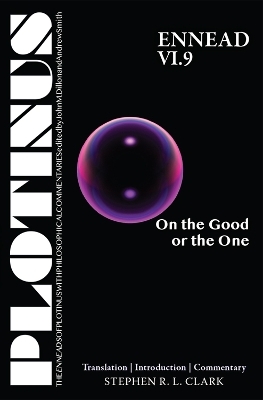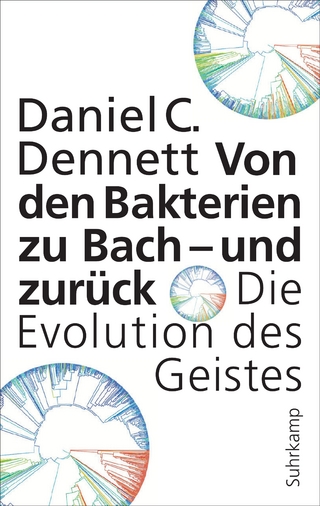
Plotinus Ennead VI.9: On the Good or the One
Translation with an Introduction and Commentary
Seiten
2020
Parmenides Publishing (Verlag)
978-1-7335357-2-4 (ISBN)
Parmenides Publishing (Verlag)
978-1-7335357-2-4 (ISBN)
- Titel nicht im Sortiment
- Artikel merken
This early treatise is placed by Plotinus' editor at the very end of the Enneads, as the culmination of his thought. It is a cosmological sketch, arguing that the being of anything depends on its being unified by its orientation to its own good.
This early treatise is placed by Plotinus' editor at the very end of the Enneads, as the culmination of his thought, matching Plotinus' own last recorded instruction, 'to bring the god in you back to the god in the all.' It is a cosmological sketch, arguing that the being of anything depends on its being unified by its orientation to its own good, and so also the being of Everything, the All. The One, or the Good, is at once the goal of all things both individually and collectively, and also the transcendent source of all that we experience, mediated through an intelligible order. But it is also, and perhaps more importantly, intended as a guide to the proper education and discipline of our own motives and experience. We are encouraged to put aside immediate sensory data, egoistic prejudice and sensual impulse, first to grasp at least a little of the intelligible order within which we all live, and at last to purge even those last intellectual attachments and experience what cannot be adequately described: the unity of being.
This early treatise is placed by Plotinus' editor at the very end of the Enneads, as the culmination of his thought, matching Plotinus' own last recorded instruction, 'to bring the god in you back to the god in the all.' It is a cosmological sketch, arguing that the being of anything depends on its being unified by its orientation to its own good, and so also the being of Everything, the All. The One, or the Good, is at once the goal of all things both individually and collectively, and also the transcendent source of all that we experience, mediated through an intelligible order. But it is also, and perhaps more importantly, intended as a guide to the proper education and discipline of our own motives and experience. We are encouraged to put aside immediate sensory data, egoistic prejudice and sensual impulse, first to grasp at least a little of the intelligible order within which we all live, and at last to purge even those last intellectual attachments and experience what cannot be adequately described: the unity of being.
Stephen R. L. Clark is Emeritus Professor of Philosophy at the University of Liverpool, and an Honorary Research Fellow in the Department of Theology at the University of Bristol. His books include Aristotle's Man (1975), From Athens to Jerusalem (1984), God's World and the Great Awakening (1991), The Political Animal (1999), Biology and Christian Ethics (2000), Ancient Mediterranean Philosophy (2013), and Plotinus: Myth, Metaphor and Philosophical Practice (2016).
| Erscheinungsdatum | 20.02.2020 |
|---|---|
| Reihe/Serie | The Enneads of Plotinus |
| Verlagsort | Las Vegas |
| Sprache | englisch |
| Maße | 127 x 191 mm |
| Gewicht | 200 g |
| Themenwelt | Geisteswissenschaften ► Philosophie ► Erkenntnistheorie / Wissenschaftstheorie |
| Geisteswissenschaften ► Philosophie ► Metaphysik / Ontologie | |
| Geisteswissenschaften ► Philosophie ► Philosophie Altertum / Antike | |
| ISBN-10 | 1-7335357-2-1 / 1733535721 |
| ISBN-13 | 978-1-7335357-2-4 / 9781733535724 |
| Zustand | Neuware |
| Informationen gemäß Produktsicherheitsverordnung (GPSR) | |
| Haben Sie eine Frage zum Produkt? |
Mehr entdecken
aus dem Bereich
aus dem Bereich
Buch | Softcover (2023)
Reclam, Philipp (Verlag)
7,00 €
die Grundlegung der modernen Philosophie
Buch | Softcover (2023)
C.H.Beck (Verlag)
18,00 €
die Evolution des Geistes
Buch | Softcover (2025)
Suhrkamp (Verlag)
30,00 €
![Was heißt Denken?. Vorlesung Wintersemester 1951/52. [Was bedeutet das alles?] - Martin Heidegger](/media/113619842)

